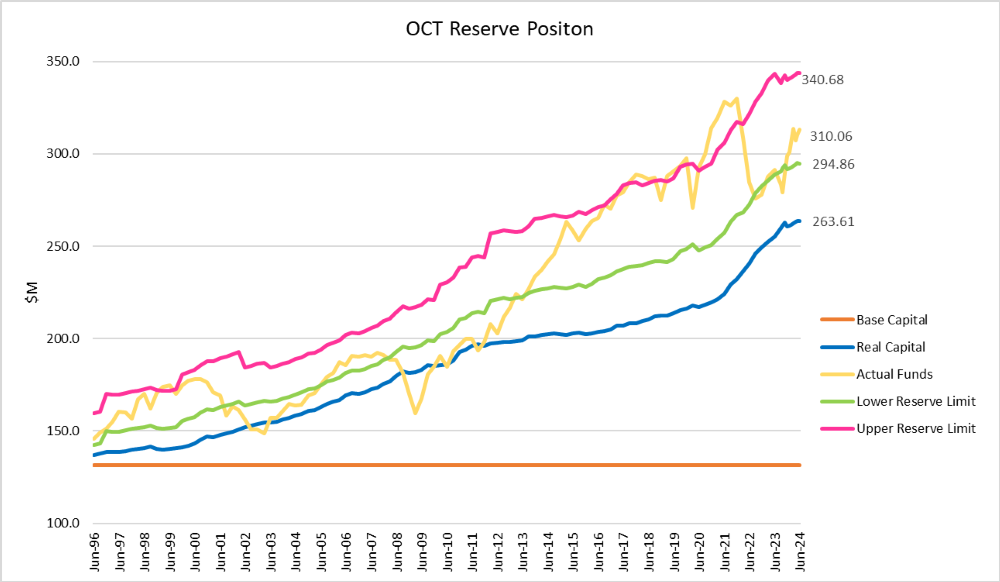Otago Community Trust's ability to grant is underpinned by the performance of its investment portfolio. Established in perpetuity, we aim to grow the value of our capital fund to keep pace with both inflation and population growth in the region. At all times we aim to preserve capital and maximise the funding available for granting, with the flexibility to respond to investment opportunities as they arise.
Statement of Investment Policy and Objectives (SIPO)
The Statement of Investment Policy and Objectives (SIPO) prepared by the trustees of Otago Community Trust sets out the objectives, policies, and beliefs governing decisions about investments in relation to the Trust's assets, including our responsible investment policy.
The SIPO takes account of the requirements of:
- The Trust Deed;
- The Trust Act 2019; and
- The Community Trusts Act 1999
Please download our latest SIPO here.
The trustees acknowledge that strategic asset allocation is the key investment decision as this will have the greatest impact on the Trust’s financial outcomes.
The trustees have agreed that an allocation of 55% to growth assets and 45% to income assets is appropriate in order for the trust to meet its long term objectives of consistent and sustainable distributions and real (after inflation) capital growth.
Growth assets are New Zealand and global shares. These assets are expected to provide higher returns over the long term.
Income assets comprise New Zealand and global fixed interest and cash. These assets are expected to provide lower, but more stable returns and protection against share market declines.
The Reserving chart for the year ending 31 March 2024 is outlined below, the detailed Reserving policy is outlined in the Otago Community Trust SIPO.
The Trust may change its investment strategy and/or granting depending on the outcomes relative to the inflation- adjusted capital, with a goal of avoiding falling significantly below the inflation-adjusted capital.

Appendix 1
UN Global Compact
The UN Global Compact asks companies to embrace, support and enact, within their sphere of influence, a set of core values in the areas of human rights, labour standards, the environment and anti-corruption.
The 10 Principles of the UN Global Compact
Human Rights
Principle 1 Businesses should support and respect the protection of internationally proclaimed human rights; and
Principle 2 Make sure they are not complicit in human rights abuses
Labour
Principle 3 Businesses should uphold the freedom of association and the effective recognitions of the right to collective bargaining
Principle 4 The elimination of all forms of forced and compulsory labour
Principle 5 The effective abolition of child labour; and
Principle 6 The elimination of discrimination in respect of employment and occupation.
Environment
Principle 7 Business should support a precautionary approach to environmental challenges;
Principle 8 Undertake to promote greater environmental responsibility;
Principle 9 Encourage development and diffusion of environmentally friendly technologies.
Anti-Corruption
Principal 10 Businesses should work against all forms of corruption, including extortion and bribery.
Appendix 2
UN Principles for Responsible Investment
As institutional investors, we have a duty to act in the best long-term interests of our beneficiaries. In this fiduciary role, we believe that environmental, social and corporate governance (ESG) issues can affect the performance of investment portfolios (to varying degrees across companies, sectors, regions and asset classes and through time). We also recognise that applying these Principles may better align investors with broader objectives of society. Therefore, where consistent with our fiduciary responsibilities, we commit to the following six principles of the UN PRI:
- We will incorporate ESG issues into investment analysis and decision-making processes.
- We will be active owners and incorporate ESG issues into our ownership policies and practices.
- We will seek appropriate disclosure on ESG issues by the entities in which we invest.
- We will promote acceptance and implementation of the Principles within the investment industry.
- We will work together to enhance our effectiveness in implementing the Principles.
- We will each report on our activities and progress towards implementing the Principles.